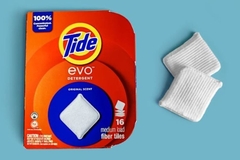Botanical boom: Skin care companies choose natural and sustainable ingredients

Natural ingredients are challenging petro-based solutions across all sectors of the personal care industry. Consumers are increasingly inclined to reach for a product from natural sources rather than synthetic ones.
Innova Market Insights data supports this trend, indicating that consumer demand for natural ingredients is growing. Skin care was the leading category for botanical claim launches in personal care, especially in Asia. Herbs were the leading fragrances for botanical launches.
Cosmetic formulators implement sustainably sourced botanical ingredients to appeal to consumers. Botanicals are derived from plants, herbs, flowers, fruits, leaves, roots, or seeds.
An innovator of botanical solutions in the personal care space is Lubrizol Life Science Beauty. It partners with customers to develop, manufacture, and market a broad range of differentiated ingredients and formulations for skin care, hair care, and skin cleansing.
“We have embraced the power of botanicals when formulating our skin care to meet the growing consumer demand for natural and sustainable products. We continually research new botanical ingredients and sustainable practices to stay ahead of industry trends,” Júlia Comas, senior product specialist at Lubrizol Beauty, tells us.
“The increasing use of botanicals in skin care reflects a long-term shift toward more sustainable and ethical products, supported by technological and agricultural innovations.”
Sustainable sourcing and supply
As consumers care more about ecological practices throughout the supply chain, companies must keep up and provide transparency across all their operations. When sourcing its botanical ingredients, Lubrizol Beauty claims to be sustainable.
“We have prioritized botanical ingredients from ethical and sustainable sources, ensuring that our products are effective and environmentally responsible. Also, some of our ingredients come from upcycling sources, contributing to reducing waste and maximizing the use of natural resources,” says Comas.
Lubrizol’s proprietary Phenobio subcritical water technology allows the company to obtain botanical extracts that are clean and enriched with a broader range of phytoactive substances. Comas says this enhances the efficacy and appeal of Lubrizol’s botanical-based skin care solutions.
 Botanical ingredients are being used to formulate skin care products.“Consumers demand full transparency from brands, so we also have a breakthrough blockchain technology available that enhances the traceability of our ingredients while helping build up trust throughout the supply chain.”
Botanical ingredients are being used to formulate skin care products.“Consumers demand full transparency from brands, so we also have a breakthrough blockchain technology available that enhances the traceability of our ingredients while helping build up trust throughout the supply chain.”
“Our commitment to botanicals is part of a larger focus on sustainability, innovation, and consumer trust. Transparency is crucial to us, and we aim to educate consumers about the benefits and origins of our ingredients, fostering more informed and conscious choices. Our journey with botanicals is ongoing, and we are excited about the future possibilities they offer for creating effective and environmentally friendly skin care solutions.”
In a push for supply chain openness, BASF recently released the results from its India-based castor bean farming program to provide clarity to its consumers.
The initiative, launched in 2016, aims to transform the castor bean farming industry by promoting sustainable initiatives, incorporating environmentally conscious practices, boosting yields, and improving farmers’ livelihoods and working conditions — particularly for women. BASF reported delivering a 57% increase in yields, training over 1,100 women, building 100 medical camps, and reducing water usage by 33%.
Growing interest and safety
According to the EU Ministry of Foreign Affairs, Europe is one of the largest and fastest-growing markets for cosmetics in the world and experiencing increasing demand for natural ingredients.
“Western European countries, with large consumer markets and important trading hubs, offer the most opportunities for exporters of all kinds of natural ingredients, specifically vegetable and essential oils,” says the Ministry.
“Trend-wise, botanical extracts are of major interest to cosmetics brands and manufacturers. Hundreds of plants have cosmetic properties, and more botanical extracts are introduced to the market every year. The challenge with botanical extracts is that most non-food plants are toxic, and their use must therefore be supported by adequate safety and efficacy data.”
Some dermatologists recommend avoiding botanical ingredients in cosmetics, as they often have fragrances that can cause skin irritation.
“I get so many patients on a daily basis telling me that they picked certain products because they think it’s safe, it’s plant-based, it’s all botanical. This is frustrating because just because a product is made of plants doesn’t mean it’s safe. Poison ivy is a plant. You’re not going to put that on your face,” Shirley Chi, MD, a California-based dermatologist, told Well+Good. Consumers want their self care producs to use natural ingredients.
Consumers want their self care producs to use natural ingredients.
Evolving trends
Lipoid Kosmetik, a manufacturer of botanical extracts, actives, and natural phospholipid products for the cosmetic and personal care industry, recently developed the Peeling Complex.
The ingredient combines citric acid, gluconic acid, and amber acid in a ready-to-use formula. The blend offers complementary exfoliation effects that provide immediate and prolonged results across all layers of the skin.
Meanwhile, Desert Essence uses desert botanicals like jojoba, tea tree, shea butter, coconut, manuka, and aloe to create hydrating and ecological hair, skin, body, and oral care products. Desert Essence’s products are vegan, non-GMO, and cruelty-free.
“The use of botanicals in the beauty industry is on the rise, driven by strong consumer demand for natural, plant-based, and sustainable products. We expect this trend to continue evolving,” explains Comas.
“As global crop yields decline, reducing dependence on natural resources will become crucial. Regenerative agriculture, vertical farming, and lab-grown naturals, among others, are poised to play significant roles in the future of skin care, providing sustainable alternatives that align with consumer values.”













